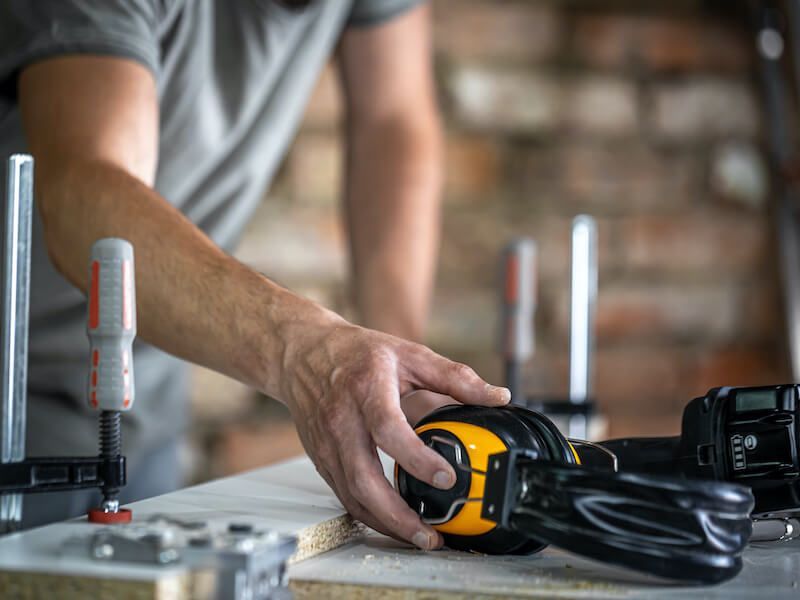Three Basic Steps to Lessen Hearing Loss

Pizza is a fascinating thing. As long as a few criteria are met, you can change toppings, cheese, and sauce, and it’s still a pizza. Hearing loss is a lot like that. But as long as you have trouble hearing sound, it’s still hearing loss whether it’s due to genetic factors, age, blockages, or exposure to loud noise.
Normally, when you’re confronted with hearing loss (no matter the variety), the first thing you need to do is try to limit the damage. You can, after all, take some simple steps to limit additional damage and safeguard your ears.
Tip 1: Clean your ears
When you were younger, you likely were taught that you need to clean behind your ears. But it’s inside of your ears that we’re concerned with here, when it comes to hearing health, not the back of your ears.
There are various ways that earwax accumulation can impact your hearing:
- Earwax accumulation also interferes with the functionality of your hearing aid if you use one. This could make you think that your hearing is going.
- Sound waves going to your ears can be blocked when a substantial amount of earwax builds up. When this occurs you won’t be able to hear as well.
- Your risk of getting an ear infection is elevated if your ears aren’t kept clean and that can result in inflammation which will interfere with your hearing. When your ear infection clears up, your normal hearing will normally return (but that’s something you should consult a doctor about).
If you notice earwax buildup, it’s absolutely not recommended that you dig around in there with a cotton swab. In most circumstances, a cotton swab will make things worse or cause additional damage. Instead, use over-the-counter ear drops.
Tip 2: Steer clear of loud sounds that could result in hearing loss
This is so evident that it sort of goes without saying. The problem is that the majority of people are hard-pressed to characterize what a “loud noise” really is. A freeway, for instance, can be noisy enough that over a long time period, it can harm your ears. Your ears can also be damaged by frequent usage of your lawn mower. As you can tell, it’s not only blasting speakers or loud rock concerts that harm your ears.
Some practical ways to avoid harmful noises include:
- When you’re listening to tunes or viewing videos, keep your headphone volume at safe levels. When approaching dangerous levels, most headphones have a built-in alert.
- Wearing ear protection when loud environments are unavoidable. Do you work on a loud factory floor? It’s fine if you want to go to that rock concert. But wear the required hearing protection. Modern earmuffs and earplugs offer sufficient protection.
- Using an app on your phone to alert you when volumes reach hazardous thresholds.
The damage to your ears from loud noises will build up gradually. So, even if your hearing “feels” fine after a noisy event, that doesn’t mean it is. Only if you come in for a hearing exam can we give your ears a clean bill of health.
Tip 3: If you have any hearing loss, deal with it
In most situations, hearing loss accumulates gradually over an extended time period. You’ll be in a better position to stop further damage if you recognize your hearing loss early. In terms of hearing loss, that’s why treatment is so important. Practical treatments (on which you follow through) will put your hearing in the best possible condition.
Treatment works like this:
- Hearing aids reduce the brain strain and social isolation that exacerbate hearing loss-related health problems.
- Some, but not all damage can be avoided by wearing hearing aids. If you’re wearing hearing aids, for example, you won’t always need to turn volumes up to harmful levels. This will prevent further noise-related damage.
- We will help you stay clear of additional damage to your ears by providing you with individualized guidance when you come in for an assessment.
In the long run, you will be benefited by wearing hearing aids
While it’s true that hearing loss has no cure, hearing specialists are focused on limiting additional harm to your ears. Treatment of hearing loss is usually one of the primary approaches to that. Your current level of hearing will be preserved and hearing loss will be prevented from getting worse with the correct treatment.
When you use hearing protection, practice good hygiene, and get hearing loss treatment with us, you’re taking the correct measures to minimize hearing loss while also giving yourself the best opportunity for healthy hearing in the years to come.


